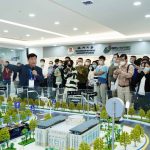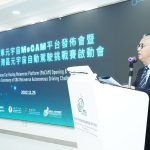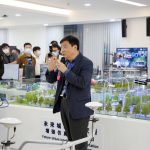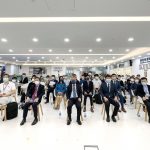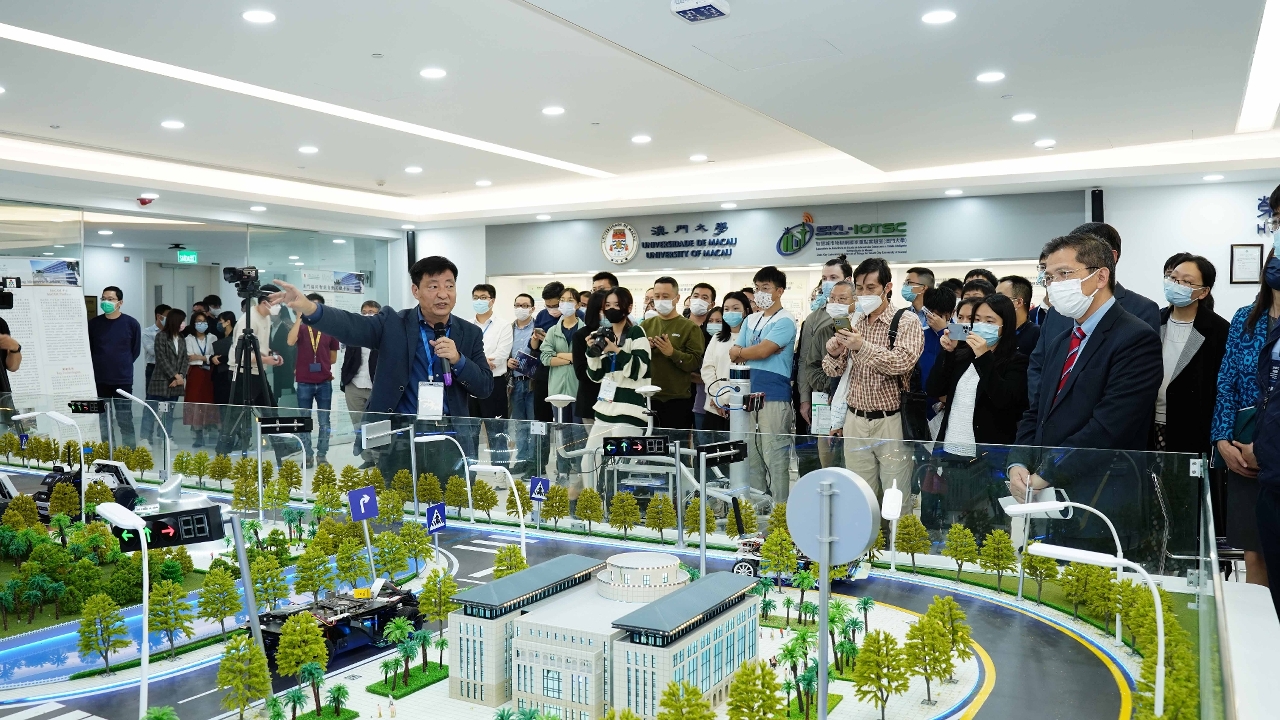 The MoCAM Platform
The MoCAM Platform
The University of Macau (UM) State Key Laboratory of Internet of Things for Smart City (SKL-IOTSC) and Faculty of Science and Technology (FST) today (25 November) held an inauguration ceremony for the Macao Car Racing Metaverse (MoCAM) Platform cum an opening ceremony for the Guangdong-Hong Kong-Macao Greater Bay Area Metaverse Autonomous Driving Challenge. During the event, which combined both virtual and in-person elements, a metaverse-based platform that allows for the superimposition of real autonomous driving vehicles in simulated scenarios was demonstrated. The platform is expected to promote the research and development of new autonomous driving technologies and provide an ideal experimental environment for autonomous driving competitions, laying the ground for the development of e-sports and diversified tourism in Macao.
In his speech, Yonghua Song, rector of UM and director of SKL-IOTSC, said that the project aims to use metaverse technology to create world-leading simulated and real scenarios. According to him, the flow of traffic and people can be simulated in these scenarios and is superimposed with real autonomous driving vehicles to create a multi-dimensional metaverse platform. This platform is expected to promote the research and development of new autonomous driving technologies and provide an ideal experimental environment for autonomous driving competitions as well as conditions for the development of e-sports and diversified tourism in Macao. During the event, Xu Chengzhong, dean of the FST, presented the multi-dimensional mixed-reality analog system of the MoCAM platform and demonstrated the interaction between real autonomous driving vehicles and virtual vehicles on a simulation sand table, a technology that can calculate the adaptability of self-driving vehicles to various scenarios on the road to prevent accidents from happening.
The metaverse platform is also equipped with the function of generating virtual scenarios. The technologies and systems established so far can provide technical support for metaverse-based autonomous driving competitions, especially in verifying the adaptability, stability, and efficiency of autonomous driving algorithms in different scenarios. UM will work with the City University of Hong Kong and the Southern University of Science and Technology to organise the GBA Metaverse Autonomous Driving Challenge, which will provide an opportunity for students as well as researchers to compete against each other on a metaverse platform.
Guests attending the events included Chu Zhubin, head of the department of education and youth affairs of the Liaison Office of the Central People's Government in the Macao SAR; Cheang Kun Wai, member of the Administrative Committee of the Science and Technology Development Fund of Macao; Xavier Carlos Roberto, a department head of the Education and Youth Development Bureau; Chan Chou Weng, head of the Technology Application and Support Division of the Economic and Technological Development Bureau; Eunice Cheang and Janet Choi, two representatives of CTM; as well as representatives of BoardWare Information System Limited, Pui Ching Middle School, Yuet Wah College, and UM faculty members and students.
In addition, the Second Macao Symposium on Cloud Computing and Intelligent Driving, an event co-organised by UM and the Shenzhen Institute of Advanced Technology of the Chinese Academy of Sciences, was recently held with both virtual and in-person elements. The event attracted nearly 100 participants, including experts, scholars, researchers, and students. During the symposium, which served as a platform for exchanges on academic topics and technological innovation, the participants shared their research results and had in-depth discussions on intelligent driving as well as the artificial intelligence and cloud computing technology behind it.


